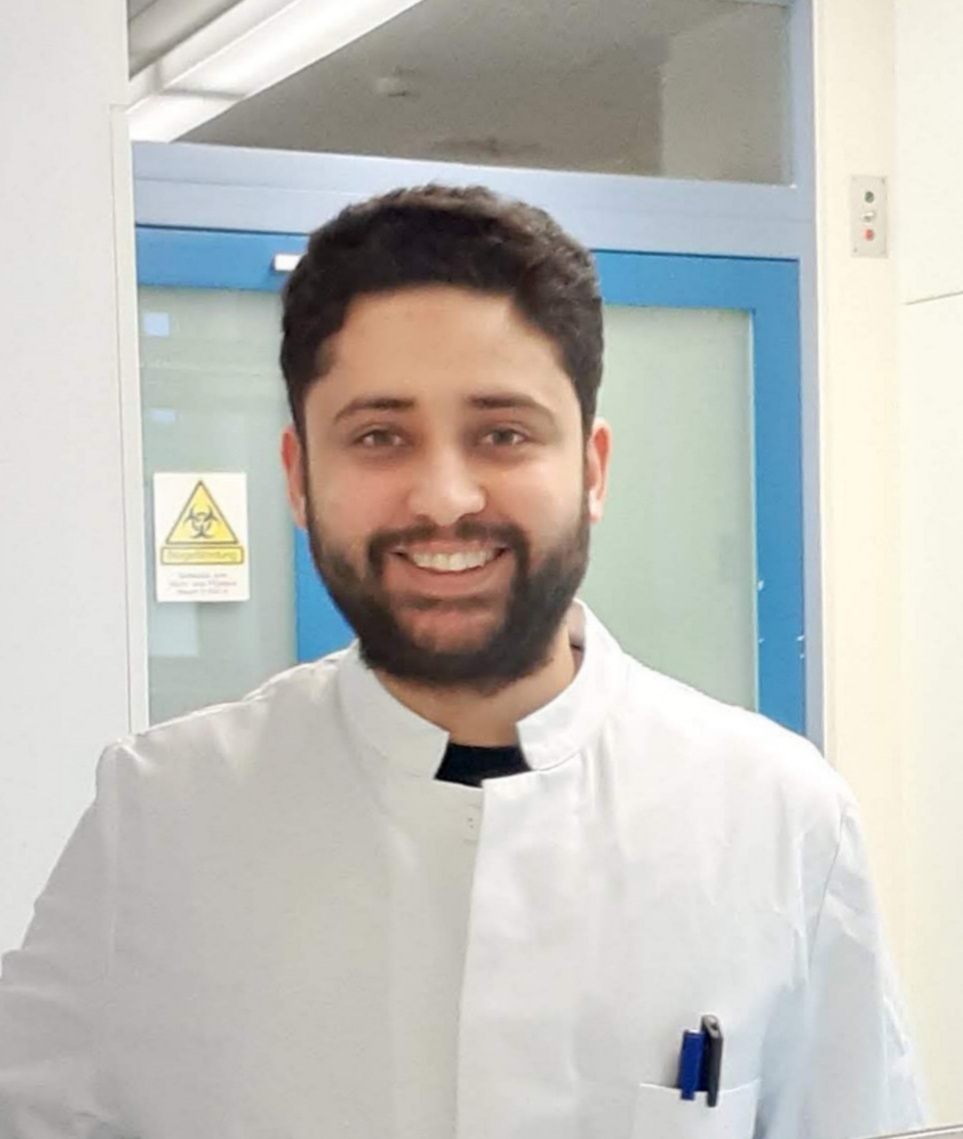National reference center for Clostridioides difficile

(Visitors with a clinical question please change to the homepage of the Hospital Hygiene at UKS)
Clostridioides difficile, a gram-positive rod-shaped bacterium, is the main cause of nosocomial diarrhea of infectious origin (usually after antibiotic administration), but also occurs in outpatient settings. It is also ubiquitous and represents a possible zoonosis. In the past, so-called "hypervirulent" strains such as ribotype 027 (RT027), which has spread from North America to Europe, have led to numerous severe forms of the disease and outbreaks. In addition, there is a whole range of other genotypes with increased epidemiological significance (e.g. RT001 and RT078). In principle, more virulent strains in particular are characterized by antibiotic resistance to a large number of antibiotics, which also make a significant contribution to the selection of RT027, for example.
For a better scientific understanding and epidemiological significance of certain important pathogens, various reference centers have been established under the direction of the Robert Koch Institute. The National Reference Center for Clostridioides (Clostridium) difficile (NRC) was created in 2017 from the Clostridium difficile consiliary laboratory established in Homburg in 2011. It is divided between the three locations, Homburg, the University of Münster and the Christophorus Clinics in Coesfeld.
The main task of the NRC is the surveillance of C. difficile strains circulating in Germany. Specifically, the NRC coordinates epidemiological studies or supports RKI projects. Isolates received can be characterized using all state-of-the-art methods. This includes ribotyping, whole genome sequencing, as well as phenotypic methods and, in particular, comprehensive resistance testing.
In addition to surveillance, the NRC combines a number of other fields of activity relating to numerous aspects of C. difficile. The methods for genetic characterization are constantly being improved and, in addition to virulence and selection factors, also enable the (micro)evolution of C. difficile to be mapped and relationships to be described in a broader context. In this context, ribotyping is currently being replaced by whole genome sequencing to enable improved surveillance at an even higher resolution. This also applies to phenotypic test procedures, in particular for resistance testing, whereby agar dilution is also established as the gold standard here.
Our NRC is also active in basic research, e.g. the development and improvement of diagnostic procedures such as mass spectrometry (MALDI-TOF), quality assurance and clinical research.

Prof. Dr. med. Barbara C. Gärtner
Tel.: +49 (0) 6841 16-23900
Fax: +49 (0) 6841 16-23985
E-Mail: mikrobiologie@uks.eu

Prof. Dr. sc. nat. ETH Markus Bischoff
Tel.: +49 (0) 6841 16-23963
Fax.: +49 (0) 6841 16-23985
E-Mail: markus.bischoff@uks.eu
Selected publications of our NRC
- Abdrabou et al. (2023). Discrimination between hypervirulent and non-hypervirulent ribotypes of Clostridioides difficile by MALDI-TOF mass spectrometry and machine learning. Eur J Clin Microbiol Infect Dis. 42:1373-1381. DOI: 10.1007/s10096-023-04665-y
- Blau K et al. (2023). Clostridioides difficile from fecally contaminated environmental sources: Resistance and genetic relatedness from a molecular epidemiological perspective. Microorganisms 11(10):2497. DOI: 10.3390/microorganisms11102497
- Abdrabou et al. (2022) Implementation of a Clostridioides difficile sentinel surveillance system in Germany: first insights for 2019-2021. Anareobe 17:102548. DOI: 10.1016/j.anaerobe.2022.102548
- Roth et al. (2022) Antigen-specific versus neutralizing antibodies against conditioned media of patients with Clostridioides difficile infection. Front Microbiol 13:859037. DOI: 10.3389/fmicb.2022.859037
- Abdrabou et al. (2021) Molecular epidemiology and antimicrobial resistance of Clostridioides difficile in Germany, 2014-2019. Int J Med Microbiol. 311:151507. DOI: 10.1016/j.ijmm.2021.151507
- Berkefeld et al. (2020) Clostridioides (Clostridium) difficile Pacemaker Infection. Open Forum Infect Dis. 7:ofaa487. DOI: 10.1093/ofid/ofaa487
- Davies et al. (2020) Factors affecting reported Clostridioides difficile infection rates; the more you look the more you find, but should you believe what you see? Anaerobe 62:102178. DOI: 10.1016/j.anaerobe.2020.102178
- Berger et al. (2020) Molecular epidemiology and antimicrobial resistance of Clostridioides difficile detected in chicken, soil and human samples from Zimbabwe. Int J Infect Dis. 96:82-87. DOI: 10.1016/j.ijid.2020.04.026
- Berger et al. (2020) Quality assurance for genotyping and resistance testing of Clostridium (Clostridioides) difficile isolates - Experiences from the first inter-laboratory ring trial in four German speaking countries. Anaerobe 61:102093. DOI: 10.1016/j.anaerobe.2019.102093


